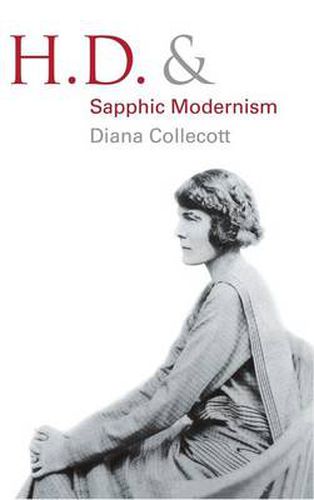Readings Newsletter
Become a Readings Member to make your shopping experience even easier.
Sign in or sign up for free!
You’re not far away from qualifying for FREE standard shipping within Australia
You’ve qualified for FREE standard shipping within Australia
The cart is loading…






Diana Collecott proposes that Sappho’s presence in H. D.‘s work is as significant as that of Homer in Pound’s, and Dante’s in Eliot’s. She undertakes a radical revision of H. D.’s Hellenism and her imagism, relating both to the literary and sexual politics of the First World War period. She then pursues H. D.’s career to the end of the Second World War, discovering en route important intertextualities with Swinburne, Wilde and Shakespeare. Connecting the fragmentary condition of Sappho’s writings with the erasure of women within modernism, and the silencing of lesbians in the wider culture, she traces the Sapphic in H. D.’s prose and poetry, and in its modern contexts. Her exploration develops a lesbian poetics not only for H. D., but also for contemporaries such as Bryer, Amy Lowell and Virginia Woolf, and for successors such as Andre Lorde, Adrienne Rich and Olga Broumas.
$9.00 standard shipping within Australia
FREE standard shipping within Australia for orders over $100.00
Express & International shipping calculated at checkout
Diana Collecott proposes that Sappho’s presence in H. D.‘s work is as significant as that of Homer in Pound’s, and Dante’s in Eliot’s. She undertakes a radical revision of H. D.’s Hellenism and her imagism, relating both to the literary and sexual politics of the First World War period. She then pursues H. D.’s career to the end of the Second World War, discovering en route important intertextualities with Swinburne, Wilde and Shakespeare. Connecting the fragmentary condition of Sappho’s writings with the erasure of women within modernism, and the silencing of lesbians in the wider culture, she traces the Sapphic in H. D.’s prose and poetry, and in its modern contexts. Her exploration develops a lesbian poetics not only for H. D., but also for contemporaries such as Bryer, Amy Lowell and Virginia Woolf, and for successors such as Andre Lorde, Adrienne Rich and Olga Broumas.